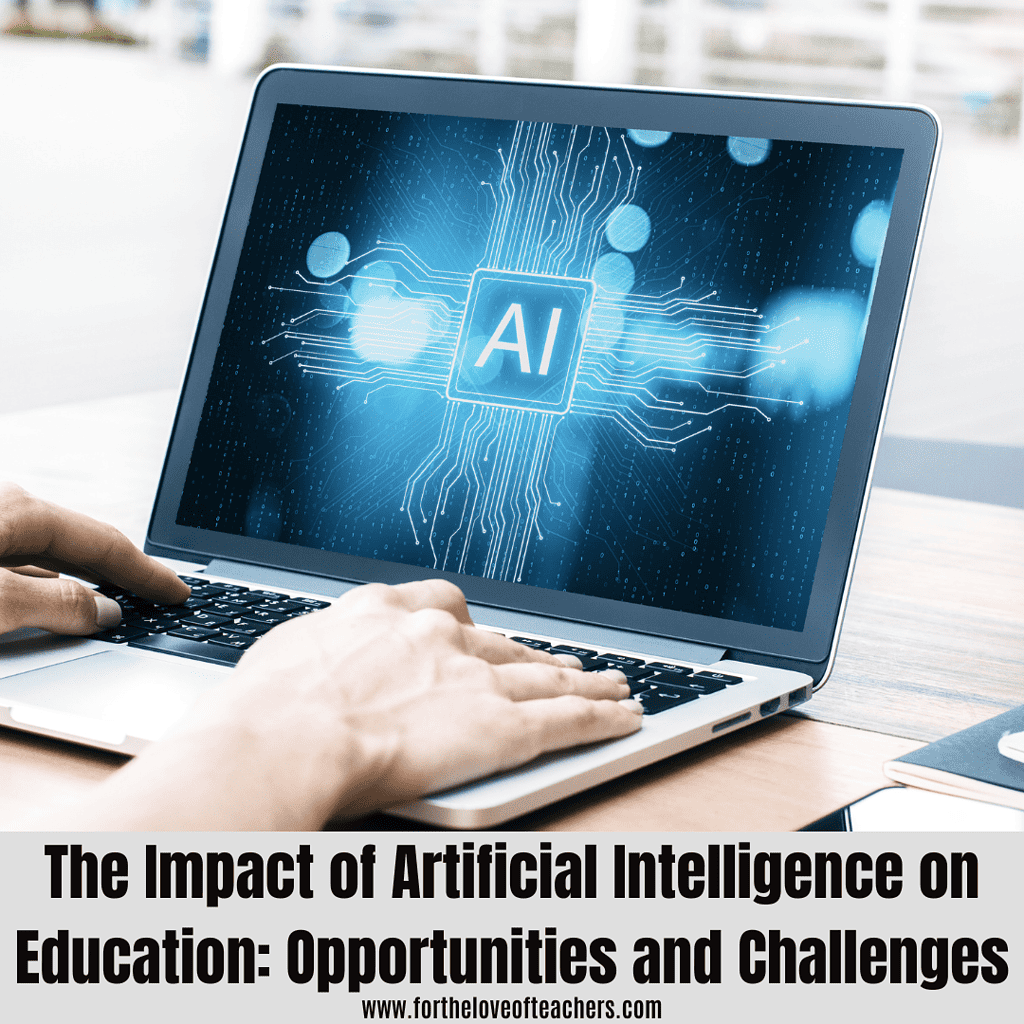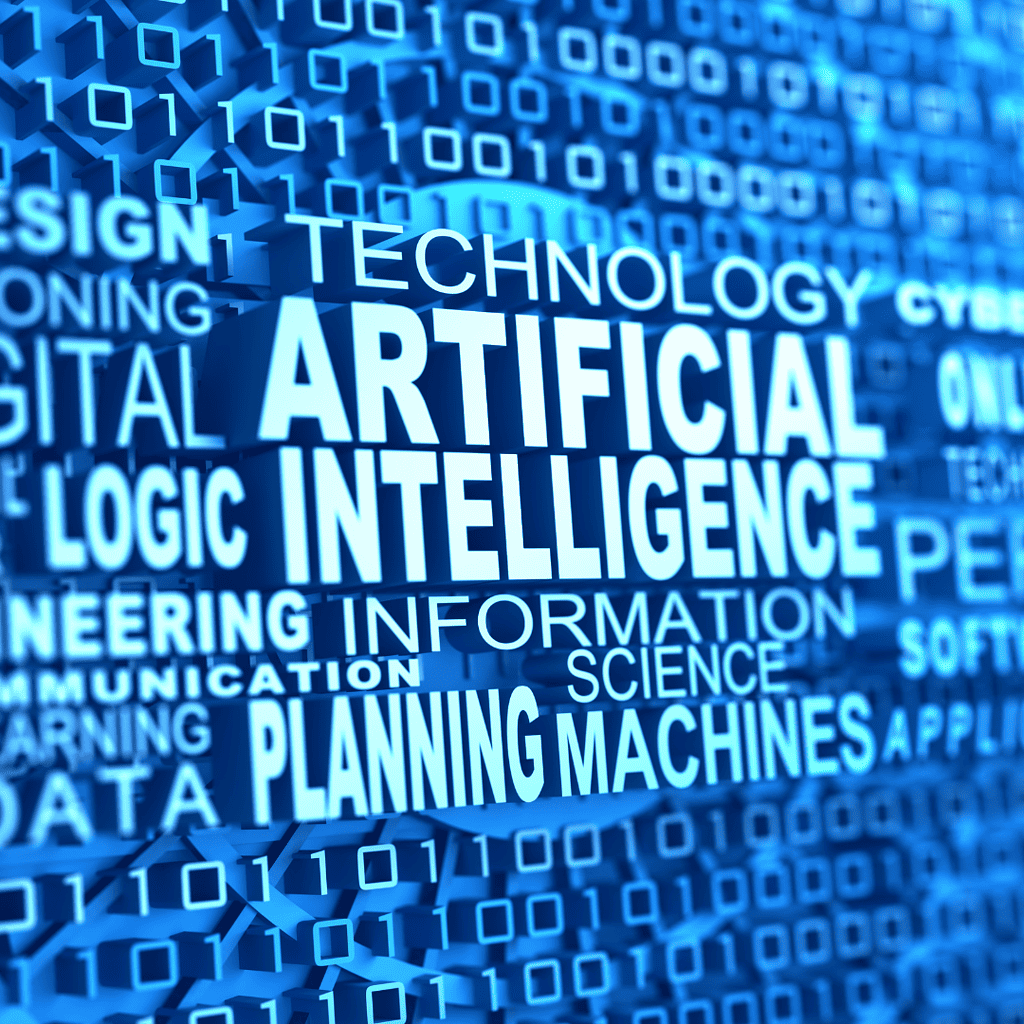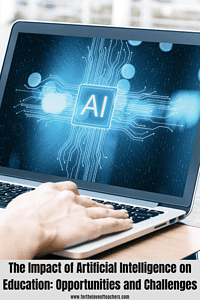The potential impact of Artificial Intelligence (AI) on the education industry is immense. AI can revolutionize how students learn. It can change how teachers teach and how educational institutions manage their operations. But, some challenges come with using AI in education.
As AI continues to evolve, educators need to remain aware of both its potential benefits and potential challenges. This will help them make informed decisions about how to best use AI in their classrooms.
Opportunities
Many opportunities await educational institutions that embrace AI technologies.
Personalized Learning and Improved Collaboration
AI can enable personalized learning experiences for students. It can provide an interactive learning environment in which students can learn at their own pace. A customized learning experience can benefit students and educators, providing a more effective teaching and learning method.
Better collaboration can also be facilitated between educators with AI. By providing communication and data-sharing tools, AI platforms make it easier for them to communicate with each other in real time. These platforms can also aid in facilitating asynchronous communication. This type of communication is beneficial for students who are learning remotely.
Teachers can also better coordinate their efforts to serve their students’ needs while increasing the efficiency of their teaching methods.
Data Analysis
With data analytics, educational institutions can make better decisions. AI-enabled platforms can collect data from students and teachers. This data then allows the institution to gain insights into how their programs are functioning.
For instance, AI-enabled platforms can analyze student progress. After analysis, it can provide tailored feedback that addresses individual learning needs. Educators can then adjust the lesson plan to fit the student’s specific needs and provide them with the necessary support to succeed.
By using AI to analyze data, educators can gain an understanding of how their students are performing. They can identify areas where improvements could be made. This data can further improve existing processes and develop new content for courses.
Furthermore, AI technology provides data that can help both educators and students perform better individually. An example of this is the use of AI technology to improve sleep quality. This technology can monitor sleep patterns to help individuals improve their nightly routines, which will help them feel more refreshed and alert for a day of learning in school.
Cost Reduction
AI can also help educational institutions to reduce costs associated with manual processes. Educational institutions can manage their operations more efficiently with the use of AI-enabled tools.
These tools can automate administrative tasks, enabling these institutions to focus their resources on teaching and learning activities instead of paperwork. Instead of using manual systems for student enrollment or course schedules, for example, institutions can ensure that resources are allocated more efficiently with the help of AI.
Broader Accessibility
AI can help widen access to educational resources. With the use of AI, educational institutions can provide materials and content that are tailored to their student’s needs. This gives them more options for learning and improves accessibility for students who have difficulty accessing traditional education.
Challenges
Using AI for educational purposes is not without its challenges. While AI has the potential to revolutionize education, some challenges still need to be addressed before it can become widely adopted.
Lack of Resources
Although AI can help educational institutions save money and resources, the technology is still relatively expensive. Many schools may not have the budget to implement sophisticated AI solutions, meaning that only certain students would be able to take advantage of personalized learning experiences or data analytics insights.
Furthermore, AI technology requires sophisticated infrastructure and the appropriate personnel to use it. Not all educational institutions may have the technical know-how or resources needed to take full advantage of AI tools. The lack of expertise among educators can also create a barrier to using AI technologies in education, as they must be properly trained to get the most out of them.
Heavier Workload
As mentioned, AI can increase the workload for educators who may need to learn how to use these new technologies. This is especially true in more traditional institutions that are not used to using any form of technology. They may need to invest time and resources in learning to use AI-enabled platforms.
While there are educational tools available that can help educators learn how to use AI, they need to be aware of the potential additional workload so that they can adequately prepare themselves.
Privacy Concerns
AI-enabled platforms also come with their own set of privacy concerns. As more data is collected and stored online, it’s important to ensure that the data is secure and adequately protected from potential malicious actors. And while AI can provide valuable insights into student performance, it should be used responsibly so as not to violate students’ right to privacy.
Final Word
From improved learning experiences to cost savings and broader access, AI-enabled platforms offer new opportunities for teaching and learning in the 21st century. With the proper implementation, these tools can help educators and students achieve their goals while ensuring data security and privacy.
However, it is important to be aware of the potential challenges of using AI. Educators must be mindful of these issues, from increased workloads to privacy concerns, and ensure they are adequately prepared for the transition. With the proper implementation and training, AI can help educational institutions achieve greater success in their teaching and learning methods.
What do you think about AI and its effects on education? Share in the comments.
About the Author: Sophia Young recently quit a non-writing job to finally be able to tell stories and paint the world through her words. She loves talking about fashion and weddings and travel, but she can also easily kick ass with a thousand-word article about the latest marketing and business trends, and finance-related topics, and can probably even whip up a nice heart-warming article about family life. She can totally go from fashion guru to your friendly neighborhood cat lady with mean budgeting skills and home tips real quick.
Thanks for reading!
If you like it, then pin it!

Christine Weis is a passionate educator, classroom management coach, wife, and mom of two busy boys. She enjoys teaching, writing, and creating resources for teachers.








Im not a fan of AI! I think its not a great move for society!
You nailed it on this one! I appreciate hearing it from your perspective with your educational background.
I appreciate that you mentioned the privacy concerns and other challenges like infrastructure, training, and not having the technical know how to implement and fully use these tools to their capability.
It’s a new world – AI will bring us forward, and it’s already happening pretty rapidly.
I had a student turn in an essay and you could tell it was ai. I told him, ‘wow, your essay was so advance.’ He smiled and said, “I know.” I said it sounded an awful lot like the ai chat. His friend started to laugh and he was surprised I knew. You know, it’s not like I had been reading HIS writing all year (sarcasm). 😉 I think ai has its pros and cons, for sure.
The ability of AI-enabled platforms to collect and analyze data, providing tailored feedback and insights into student progress, is simply remarkable. It’s like having a personal assistant for both educators and students, helping them reach their full potential.
I`m a blogger, but I am still trying to avoid AL. Plus, I have two sons and the oldest will go to kindergarten in a couple of months. I hope his teachers will find a way to incorporate AL correctly into the class program, and I`ll be able to inspire my kids to use their brains more than Siri or AL.
Hey there! I wanted to let you know how informative and well-researched your article on the impact of AI on education was. You highlighted the potential opportunities and challenges beautifully. Keep up the great work!
Although AI can reduce the cost of manual processes in schools the cost of the initial system is too high at present. This may be something that schools opt to do when costs go down.
AI is really revolutionizing every aspect of our lives. It’s interesting to learn more on how it’s factoring into education.
Fantastic post! I personal believe that while AI might have some benefits, for the most part, I’ve experienced a lot of negatives on my end. Between Chat GBT becoming more financial viable for businesses to use over content creators, and young people (stupidly) using it to write papers, it’s killing creativity, specifically the writing industry. But that’s just coming from me, an exhausted and under paid writer.
I couldn’t agree more! AI-enabled platforms have truly revolutionized the way we learn and teach. The benefits are immense, from providing personalized learning experiences to reducing costs and increasing access. Seeing how these tools can help us achieve our goals while keeping our data secure and private is incredible. I’m excited to see where this technology takes us in the future!
AI is so interesting. I feel like there are so many benefits, yet it’s balanced out by scariness by overtaking some jobs.
AI has gotten such a bad name in the media lately. It is refreshing to see an informative article that shows the positive and negative of AI in the field of education.
AI has become so prevalent in all aspects of society. It’s really important to understand it, how we can use it, and what to watch out for.